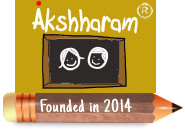Best Online Malayalam Class for kids in Sri Lanka

Sri Lanka is a land of stunning beaches, lush tea plantations, and ancient temples. However, Sri Lanka in rural and mostly outskirts areas struggles to get access to high-quality education. Cities like Colombo and Kandy have well-established schools and infrastructure, but children in villages with limited resources, a shortage of trained teachers and a lengthy commute to school
For families in Sri Lanka, online learning can be a game-changer. It brings quality education in the comfort of your home. When it comes to Malayalam communities in Sri Lanka, no matter the city, whether in bustling Colombo, coastal Trincomalee, or quiet rural towns, online learning offers children a meaningful way to stay connected to their language, culture, and roots.
Sri Lanka is a developing nation that faces a low quality of life for the population. The country is facing challenges, but despite that, it gives significant importance to child education. The literacy rate of the country is increasing. The Sri Lankan education system is progressing as it is implementing free and mandatory until grade nine, that is, 5 to 14 years of age. Numerous organizations are working tremendously to improve child education in Sri Lanka.
While Sri Lanka’s schools provide quality education, many Malayalee parents worry about their children losing touch with their mother tongue. In a world where English and Sinhala or Tamil dominate classrooms, how can you keep your child connected to their roots?
This is where Akshharam turns out a practical solution, Online Malayalam classes for kids with an adaptable online learning Pattern. At Akshharam, learning Malayalam is a structured process where each level builds upon the last. Our classes are carefully designed for proper guidance, ensuring students master foundational basics before progressing to advanced concepts. The following are the sessions we follow on a sequential cycle:
Harishree Sessions
- Harishree session is the first step in learning the basics of Malayalam. Children will learn to read and write the Malayalam alphabet through fun and interactive activities.
- Akshharam ensures kids grasp each letter’s unique sound and correct writing method. Whether your child is a complete beginner or needs reinforcement, this program makes learning engaging and effective, setting them on their path to fluency.
Vaayanashaala Sessions
- In Vaayanashaala session, children develop greater familiarity with Malayalam while improving their fluency. They learn to read and write simultaneously, gaining independence in both skills.
- Akshharam focuses on practical learning to use common Malayalam words, helping students build a strong foundation for the next sequential level. With Akshharam, Learning has never been easier. These sessions create a firm ground for the next level.
Thoolika session
- When completing Thoolika session, children will master the art of writing Malayalam. The program also covers essential grammar concepts, including plurals, prepositions, common tenses, and other language structures.
- Through expert guidance and focused practice in both writing and reading, students will develop a stronger, more confident command of their native language.
Kilikonchal session
- Akshharam’s kilikonchal session empowers children to excel in real-life Malayalam communication. This interactive program focuses on developing conversational fluency, helping kids communicate independently in everyday situations.
- Through practical exercises and engaging activities, students gain the confidence to interact naturally in Malayalam. Akshharam’s approach ensures mastery of the language extends beyond the classroom, fostering lifelong skills for meaningful connections.
Why is Malayalam Important in Sri Lanka?
Malayalam is all about preserving culture, identity, heritage, and belonging. It is not just simply the way to communicate, but it is way more than that. The following are the importance of learning Malayalam:
Cultural preservation: Whether their ancestors migrated for trade, employment, or historical ties, Malayalam helps the Malayalee community stay connected to their roots and heritage. In Sri Lanka’s multicultural society, the language preserves the values, traditions, and folklore that shape its distinct identity.
Family and generational bonds: The upcoming generation losing touch with their mother tongue is a concern for many Malayalee parents. It may be because they are detached from their homeland, they are exposed to cultures of Sri Lanka, and time management. Therefore, teaching kids Malayalam ensures that cultural knowledge is passed down to them at the right time, which helps in improving communication with elders and fostering family bonds.
Career and future opportunities: As Kerala and Sri Lanka are close neighbors and important trade partners, learning Malayalam offers significant future benefits. It opens doors to potential opportunities in business, tourism, and diplomacy. Moreover, bilingualism enhances cognitive abilities, improving reasoning, problem-solving skills, and mental flexibility. Whether for cultural connection, career advancement, or personal growth, for whatever reason, mastering Malayalam provides valuable advantages both now and in the future.
Religious and community connection: Kerala culture is deeply connected to religious and festivals, including cultural and community events. Understanding the language allows children to participate in festivals, prayers, and cultural celebrations with confidence.
Pride and confidence: timely learning fosters self-esteem and cultural pride in children. It helps them appreciate their heritage while thriving in Sri Lanka’s diverse community.
Conclusion
Personalized approach of Akshharam ensures the child gets focused attention, helping them learn faster effortlessly and efficiently to instill assurance, cultural pride, and a deep bond with their roots.
The education syllabus of Akshharam also caters to a special Summer program for Malayalam language. While these classes begin in summer, they are designed as a year-round program, allowing students to build fluency progressively with regular sessions.
